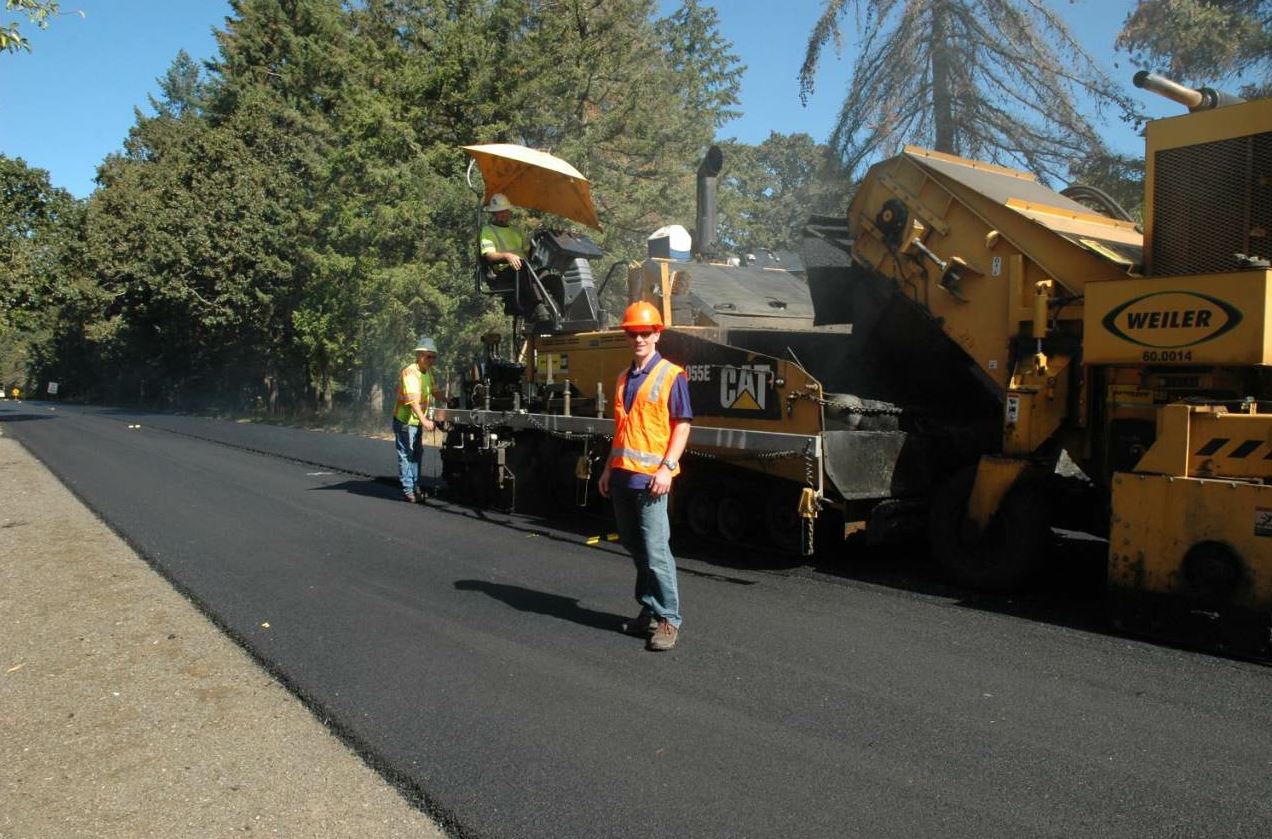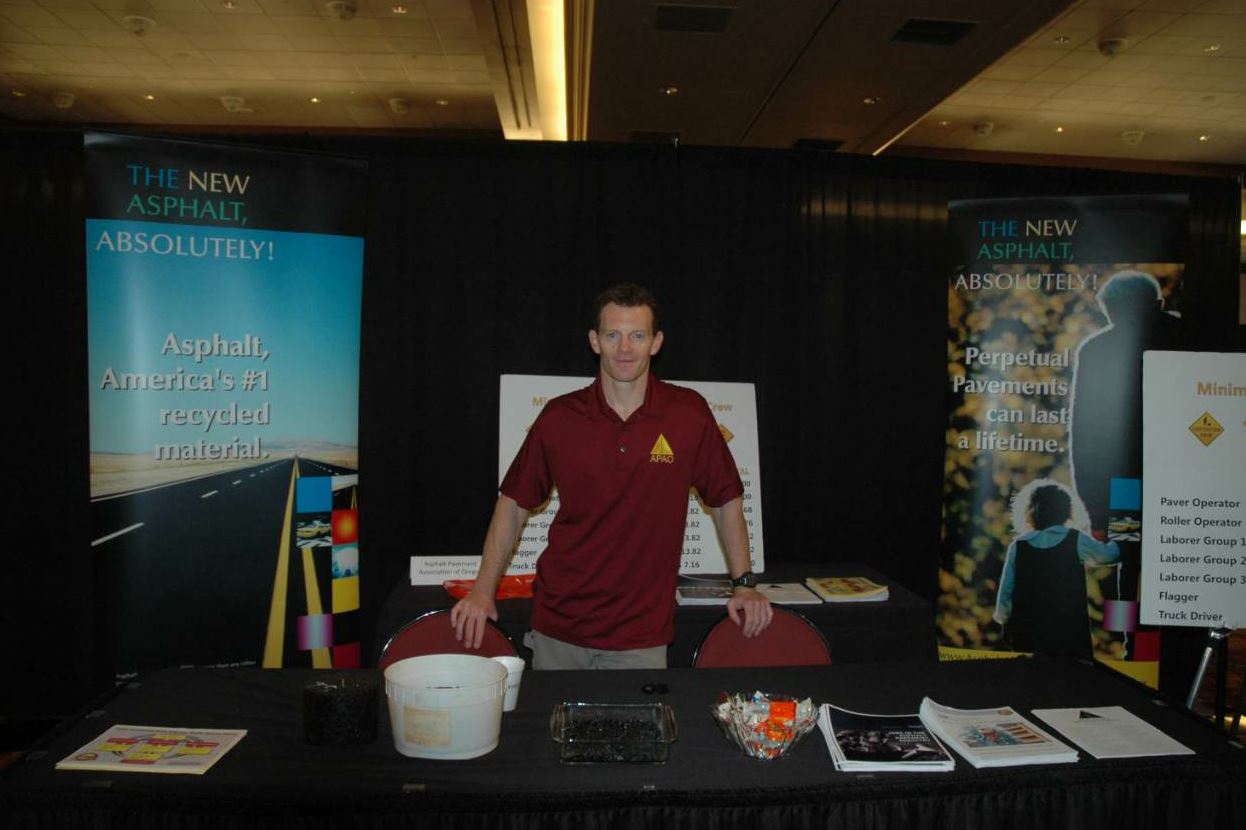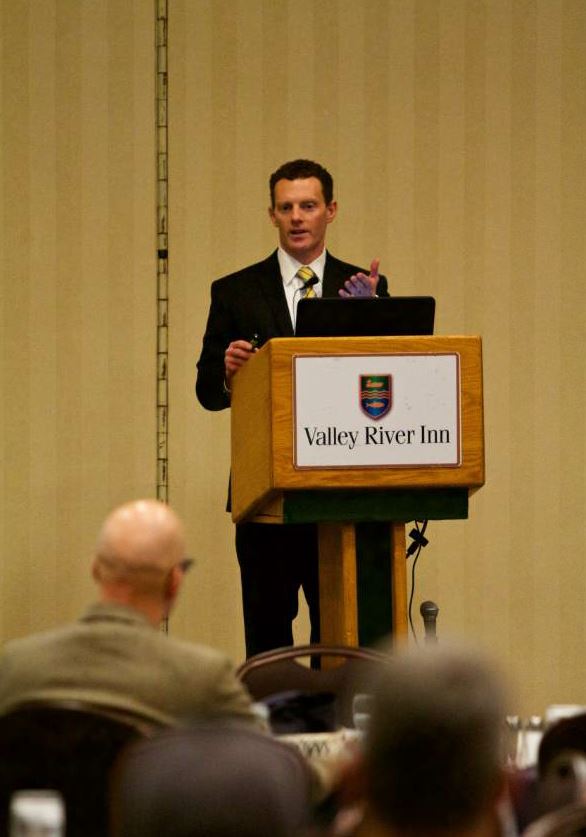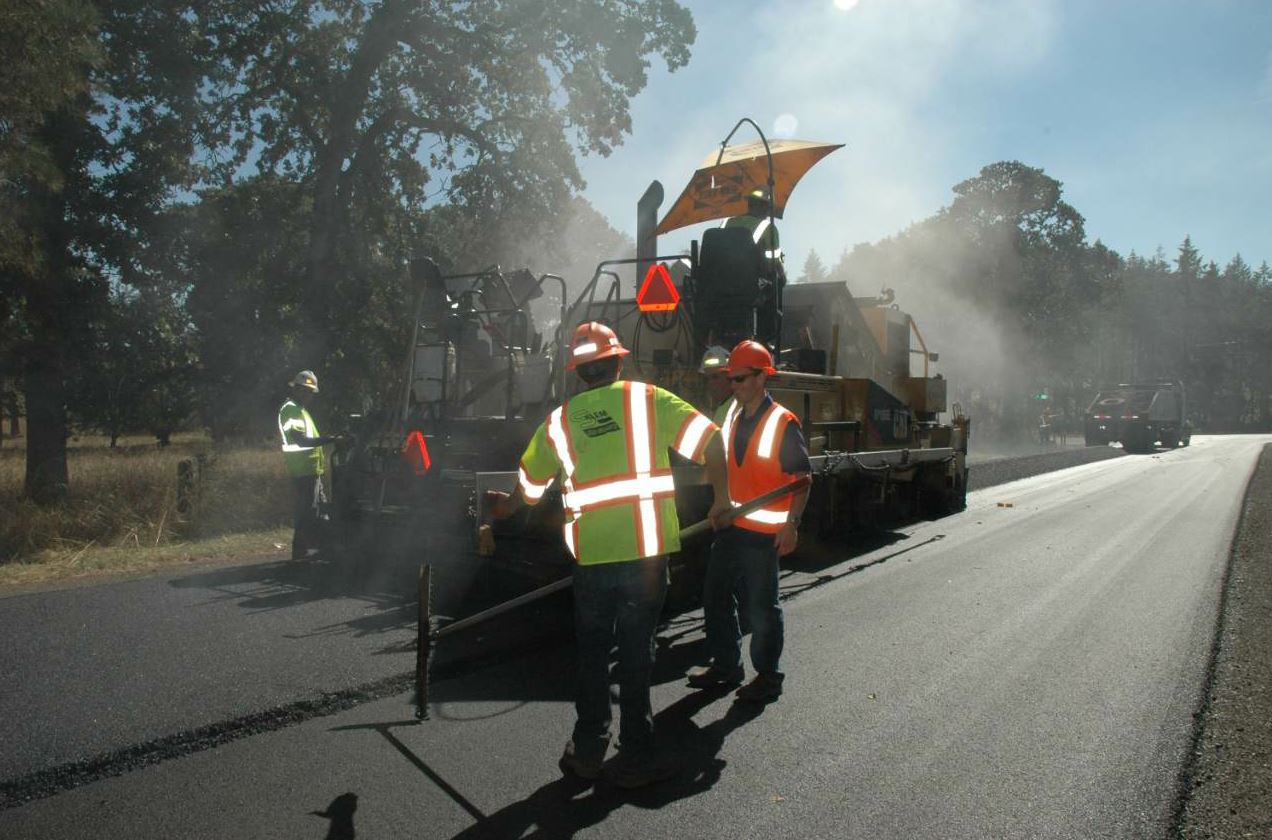Meet the State Exec: APAO’s John Hickey
BY AsphaltPro Staff

The Asphalt Pavement Association of Oregon was first formed in 1969. Now, the Salem, Oregon-based association boasts 45 producer and contractor members that represent 97 percent of the tons produced in Oregon.
APAO holds its annual meeting in December and the Oregon Asphalt Pavement Conference in February or March each year.
“We bring in experts in asphalt pavement from across the country to present on developments in asphalt pavement technology, equipment, and workmanship,” said APAO’s Executive Director John Hickey. “Our conference provides national expert access to local agencies, companies and individuals who do not have the budgets to attend national conferences.”
“Because we frequently partner with the Oregon Department of Transportation, the conference also helps us coordinate with ODOT and ensure that we have similar goals for the advancement of asphalt pavement in Oregon,” Hickey added.
Leading up to Oregon’s annual conference March 13 and 14, AsphaltPro spent time getting to know Hickey and how APAO promotes the asphalt industry in the state of Oregon.
What are the top ways you have increased membership in the association?

Hickey visits more than 20 asphalt projects each year.
Membership recruitment and retention is through communicating benefits through our newsletter, social media and face-to-face meetings. Our goals include keeping members informed of our efforts to improve and promote asphalt pavement, and we try to have fun networking opportunities where associate and affiliate members can interact with producer and contractor members.
What is your favorite method for recruiting new asphalt professionals to the industry?
In-person presentations to groups of high school or college students of no more than about 30. I enjoy showing up with three or four member representatives and each of us telling how we ended up in the industry. Because our backgrounds are so diverse, the kids leave understanding that the key to advancement in the asphalt pavement industry is desire and not formal education. I also enjoy seeing their eyes widen when we pour water through a porous pavement puck.
What other activities does the state association hold for members as fundraising events?
In 2008, APAO members formed the Asphalt Pavement Association of Oregon Education Foundation (APAOEF). The APAOEF is a separate entity, and is a 501(c)(3) charitable organization. Each year, the APAOEF awards scholarships to students interested in asphalt pavement technology. The primary fundraising activities are a golf tournament, family bingo night, guided fishing trip and wine sales. For wine sales, we occasionally bottle a barrel of wine from an Oregon winery and sell it at a small markup. The golf tournament is by far the best fundraiser.
Does your office hold educational seminars or webinars for members separate from the annual meeting and convention throughout the year?

The 2018 Oregon Asphalt Pavement Conference will be held March 13 and 14 at the Valley River Inn in Eugene, Oregon.
Yes, we offer many certification classes and educational opportunities. APAO’s strategic plan includes promoting the use of asphalt pavement through continuous quality improvement through member and customer education and training.
About how many member asphalt projects do you visit per year? What about member asphalt plant tours? Member asphalt open house events? State agency or DOT meetings?
I usually visit more than 20 asphalt projects each year and go on only about one plant tour. We typically do not have open house events that are separate from plant tours. I also go to more than 10 agency meetings each year.
On a scale of 1 to 5 (1 being none at all; 5 being very much), how much of a threat to your members’ marketshare/livelihood is the concrete industry in your state?
2.5. This past year ODOT built a round-a-bout out of concrete on a major access route for Central Oregon. Although life cycle cost analyses showed that asphalt pavement would have been cheaper, the analyses were not determinative because the round-a-bout was considered a safety feature, and safety features are not subject to the same budgetary requirements as other infrastructure investments. It appeared that the final decision was made by the local engineer who simply favored concrete.
On a scale of 1 to 5 (1 being none at all; 5 being very much), how much difficulty are your members having in finding qualified workers for their asphalt paving or production crews?
Beyond a 5. We attend career fairs and present on the opportunities in the industry at as many high schools as is reasonably possible. We are working on developing short video clips and an asphalt careers webpage and developing relationships with career services offices at local community colleges.
On a scale of 1 to 5 (1 being none at all; 5 being very much), how involved are your state elected officials in transportation issues such as funding and infrastructure improvements?

Out of all of his responsibilities, Hickey believes the most important part of his job is to be a unifying voice for the asphalt industry in Oregon.
At the federal level, Oregon’s elected officials are leaders in promoting increased funding for transportation infrastructure. At the state level, the Oregon Legislature just passed a relatively large infrastructure bill that will help reduce the infrastructure investment shortfall. Although the Oregon Legislature showed great leadership, we now need to make sure they realize that the problem is not solved, they simply made it a little less of a problem.
On a scale of 1 to 5 (1 being none at all; 5 being very much), how involved are your asphalt members in transportation issues such as funding and infrastructure improvements?
APAO members range from a 1 to a 5. Some members simply cannot put up with politicians not doing what they know is right for political reasons, and other members understand that nothing will ever get done unless we put sustained pressure on our elected officials.
How did you join the asphalt industry? And how long have you been in the industry?
I was a practicing lawyer in a law firm when the possibility of joining the asphalt industry arose. I could either continue to surround myself with lawyers, or join the asphalt industry and surround myself with contractors. No one in their right mind would pick the lawyers.
[How long I’ve been in the asphalt industry] is complicated. As a research assistant at the University of Massachusetts Dartmouth in the late 1990s, I worked with Dr. Walaa Mogawer on the implementation of Superpave in Massachusetts. I took a break from asphalt pavement for a few years until working with APAO as an attorney in 2007 or 2008. I represented many asphalt pavement contractors as a construction lawyer for about 10 years before shifting back into the technical aspects of asphalt pavement in late 2014.
Do you have a degree related to the industry?
I have Bachelor of Science in Civil and Environmental Engineering from the University of Massachusetts Dartmouth, and a Juris Doctorate from the University of Oregon. When I was attending UMass and working as a research assistant for Dr. Walaa Mogawer, I remember him promoting asphalt pavement materials as a career path because the majority of our transportation infrastructure system is asphalt pavement. All of us students took the roads for granted and wanted to design bridges or high-rise buildings. To date, I have never designed a bridge or a high-rise, and I work with asphalt pavement every day.
What do you see as the most important part of your job as an executive director of a SAPA?

Being a unifying voice for the industry in Oregon.
What is the most challenging part of your job, and why do you think it’s a challenge in your state?
There is no shortage of challenges for any SAPA: doing what is right for the industry rather than any particular member; developing relationships with the DOT and local agencies despite disagreements; advocating for adequate infrastructure funding in the face of tightening budgets; planning meetings, events, and conferences; recruiting members; communicating intangible member benefits; motivating and facilitating board and member participation; managing staff; addressing regulatory changes; recruiting the future workforce; setting the direction for the improvement of asphalt pavement technology in the state; and others. The most challenging part of my job simply is the biggest emergency on any given day.
What do you find most enjoyable about your job as an executive director of a SAPA?
There is no question that the most enjoyable part of my job is interacting with member contractors. APAO’s members are full of quality people who value family, hard work, friendships, and fun. From a people standpoint, there is no better industry.
What has been the most rewarding experience for you during your time as the executive director?
Being recognized less as a lawyer, a profession with a reputation of having members willing to say just about anything for money, and more as a knowledgeable industry representative who will represent the industry’s best interests over any one member.
